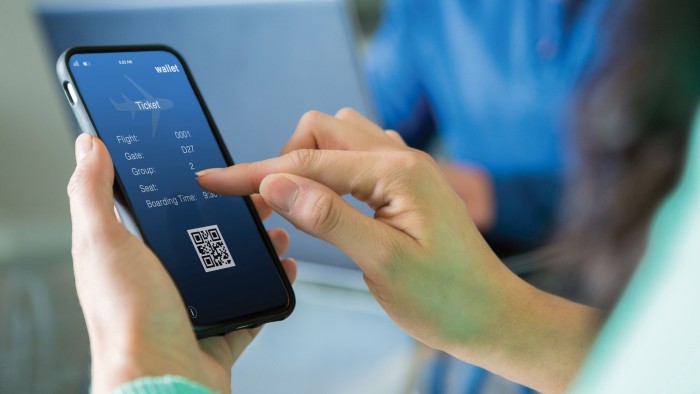Why our mental arithmetic does not add up

Roula Khalaf, Editor of the FT, selects her favourite stories in this weekly newsletter.
Kai Ruggeri is an assistant professor at Columbia University Mailman School of Public Health
If you were to go to buy a $1 chocolate bar but were told it would actually cost $6, you would probably complain about the $5 difference and refuse to pay it. But if you were buying an airline ticket priced at $250 that turned out to cost $255, you would be more likely to proceed.
This illustrates the widespread and influential phenomenon of “mental accounting”, which helps explain why individuals, institutions and societies perceive the value of money as relative to its origin and purpose.
Mental accounting is the concept around which Richard Thaler, the Nobel Prize-winning economist, built his reputation. Its potential negative applications and consequences — like overspending on large purchases when we have to use credit, which we would not when paying in cash — have spurred legislation such as the US Credit Card Accountability Responsibility and Disclosure Act of 2009.
But, with the exception of questionable applications in marketing, it has rarely been used as a catalyst to spur innovation to benefit companies and employees. One promising approach would come from thinking beyond choices around money alone, and considering how best to spend time, effort and ideas.
Imagine your frustration when a trip by car, subway or bike that typically takes 10 minutes is delayed 15 minutes by a traffic jam. Contrast that with your likely indifference to arriving back 15 minutes late because of a delayed flight home from the other side of the country or abroad.
While theoretical concepts such as loss aversion, temporal discounting, and default options are routinely confirmed in studies, recent scandals have raised concerns about some aspects of behavioural science, ranging from disappointing findings in large policy programmes to reviews that find limited benefits, and alleged cases of fraud.
So it is important to test and replicate ideas at scale and in different contexts. A recent study in 21 countries, led by Giulia Priolo and Italy’s University of Padova, which I helped supervise, confirmed the pervasiveness of mental accounting in multiple cultures and circumstances.
Thinking about an MBA?
Considering applying for an MBA? Get expert advice from admissions officers, alumni and others with our six-week newsletter course: MBA 101. Sign up here.
We took earlier research and adapted it to ensure findings were relevant in different countries, such as by removing references to alcoholic beverages, or by substituting a Bluetooth speaker with a calculator. Our conclusions showed the concept held up, with no significant differences based on factors such as age, gender, education and income.
It suggests that more efforts could and should be made to help citizens deal with retirement savings, debt management or fraudulent financial practices; and by training advisers when helping people with financial decision-making.
For example, private banks could help clients better understand the composition of their portfolios to make more efficient investments by providing information split between the different types of expenditure on their banking apps or education about the fungibility of resources.
We typically put much more time and effort into routine, small-value spending, such as in a grocery store, while accepting greater flexibility on higher value items of both investment and spending — such as the significance of a 0.1 per cent difference in mortgage rates.
Similarly, home banking apps could leverage mental accounting to help customers understand how to manage savings and highlight which expenses prevent them from saving more. They could better focus on real margins rather than purely relative ones.
Overall, our findings suggest that even financially literate individuals should not dismiss mental accounting as something that only affects others. Studies have shown that is unlikely to be true. Beyond that, we found such people were no less likely to demonstrate classic mental accounting behaviours.
As a consultant economist, I once developed a solution to address mental accounting among auditors responsible for identifying errors in large financial transactions. While they sought to identify costly mistakes, a $1,000 error out of a $1mn payment was likely to be seen as minimal, whereas a $100 mistake on a $500 payment was worth pursuing.
To solve this, we introduced a probability system that allowed auditors to reorder transactions by both the likelihood of an error (based on prior data) and the transaction value. This lowered the emphasis on the total value in the audit process to focus on net gains.
While executives and managers may mostly associate mental accounting with financial transactions, it can apply across organisations. Travel, hiring procedures, salary reviews, healthcare, meetings, policy: all involve applications of mental accounting, and each may catalyse opportunities for individuals and organisations to innovate.

Airlines could consider how they treat delays on short-haul versus long-haul flights. Employee retention could weigh more clearly the cost of promoting versus losing someone (who must be replaced). Hospitals could better track the value of prevention to treatment. Policymakers could reconsider the emphasis on auditing low-income families’ tax returns given the limited likely return.
Such potential applications offer fruitful opportunities for the next generation of leaders to develop.

Comments